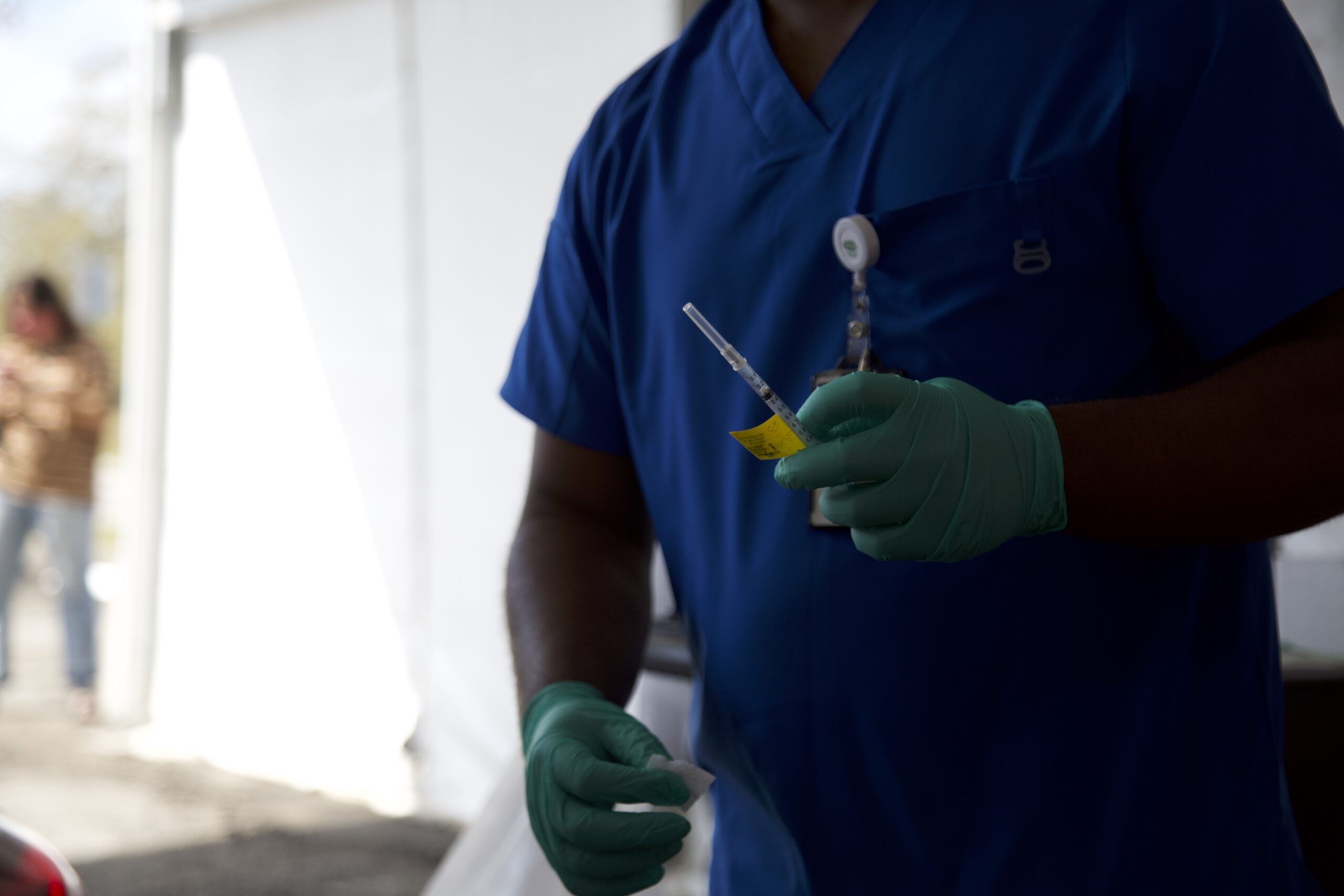Future booster eligibility period uncertain, experts say

Booster shots began making their way across the country last month as Pfizer started administering vaccines to those 65 and older and high-risk groups, but USF Health experts said the expansion of the booster to other age or health groups may not be necessary.
Effectiveness of the third dose doesn’t necessarily mean the booster shot will expand much further to the general population, according to College of Public Health professor Jill Roberts. She said boosters are not needed as much for those who have healthier immune systems and have received the initial two doses.
“There is no clinical data to suggest that that’s necessary for the other groups. The clinical data we would be looking at is, of course, hospitalizations with severe disease and death,” Roberts said.
“The bottom line is, if it’s not necessary, we wouldn’t do it. It’s expensive to produce and distribute them. It’s wasting doses that could go to people who haven’t had a single-dose kit, and it’s potentially risking side effects in folks that didn’t get them with the first two doses.”
Roberts said one of the only reasons boosters may become available to a more widespread population in the future is if hospitalizations increase.
“The reason that we want to boost the groups that we’re boosting right now is not because the vaccine is failing, it’s because that person’s immune system is failing. So it doesn’t make sense to actually boost a person whose immune system is healthy, at least at this time,” she said.
“But maybe six months from now we actually do see an increase in hospitalizations among younger individuals, and that would be an indication to us that the vaccine really is starting to fail, which would not be unheard of.”
The purpose of booster shots is to remind the immune system of dangerous pathogens that could threaten the immune system, according to Roberts.
“Booster shots are usually given when the immune response to a specific pathogen starts to go away. So over time, our immune system will start to ignore certain things, and we can only make so many cells for so many different pathogens because there’s only so much you have in your blood,” she said.
Roberts said booster shots differ from other yearly shots, such as the flu vaccine, as boosters are the same shot injected a third time instead of an entirely new one.
“Some people are going to get a little confused about what boosters actually are and what they aren’t. When we boost something, we give the exact identical thing we gave last time,” she said.
“It has to be the same pathogen, it is not something different. For example, each year we get another flu shot and the shot we get is unique — it is not a booster. It’s different from the shot we got the year before.”
Booster shots are only available to individuals who received the initial two doses of the Pfizer vaccine, at least six months after the last dose. Moderna is about a month behind due to its initial clinical trials starting later than Pfizer’s, according to Roberts. It is expected a booster will become available for those who received Moderna sometime within the next month.
Johnson and Johnson will most likely have its booster shot ready at a much later and unknown date, according to Roberts.
The future of the pandemic, however, could see another wave in infections. Michael Teng, associate professor at the Morsani College of Medicine, said this could be a cause for making the third dose available more broadly.
“With the notion that we’ve never experienced anything like this, I would say that given that there’s still high transmission globally, it’s likely that we’re going to see another wave,” he said. “I think we’ve gotten to a place where large swathes of our country have given up on non-pharmaceutical interventions like masking and distancing. That’s probably going to happen again in a different place where they have low vaccination rates and low amounts of population.
“However, I think at the end, we’re going to have some pretty good immunity to this. For the flu, we require an annual flu shot because it changes the way it looks to our immune system. So, our immune system doesn’t quite recognize that as well. The coronaviruses tended not to as much, so I don’t think we’re going to have annual booster shots like the flu.”
Reports on the effectiveness of Pfizer’s booster shot have been positive so far, according to Teng, and he said data has shown the booster is efficient in protecting the immune system.
“A lot of data is coming from Israel, where they already have gone through a campaign of boosting their [population] above 60 years old. The time frame is pretty short, but they seem to have better protection than just the two dose series, something like two times better protection,” he said.
With the looming threat of a potential new wave in the near future, Roberts said continuing to mask up, social distancing and getting vaccinated are the strongest ways to combat the pandemic.
“We have really good data that came out two days ago showing that the majority of the people who actually are reporting long-term COVID symptoms as people are still having breathing problems sometimes six months after having had COVID,” she said.
“You want to get vaccinated because long-term COVID sickness is associated with serious disease. If you get vaccinated, you won’t get a serious disease.”







